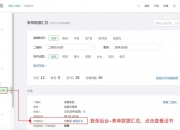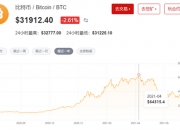1、虚拟货币为指非真实的货币。数字货币:数字货币为电子货币形式的替代货币。数字金币和密码货币都属于数字货币(DIGICCY)。加密货币:加密货币为一种使用密码学原理来确保交易安全及控制交易单位创造的交易媒介。
A digital currency: a digital currency is an alternative currency in the form of an electronic currency. A digital gold currency and a cryptographic currency are digital currencies (DIGICCY). A encrypted currency: an encrypted currency is a transaction medium created by cryptographic principles to ensure the security of transactions and control the transaction unit.
2、数字货币可以用来描述所有电子货币的总称,包括虚拟货币和加密货币。数字货币是不存在任何物理形式的电子货币,因其功能和内在的属性都和标准非法定货币相同,也可简称为网络版现金。数字货币是看不见摸不着的,人们需要通过可以连接到特定网络的设备来使用和持有。供参考。
2 Digital currencies can be used to describe the sum of all electronic currencies, including virtual and encrypted currencies. Digital currencies are electronic currencies that do not exist in any physical form, because their functional and intrinsic properties are the same as standard illegal currencies, and can also be called Internet-based cash. Digital currencies are invisible, and people need to use and hold them through devices that can be connected to specific networks.
3、数字货币是一个笼统的术语,用来描述所有形式的电子货币,无论是虚拟货币还是加密货币。数字货币的概念最早是在1983年提出的。研究者后来以DigiCash的形式实现了它。数字货币的定义特征是,它们仅以数字或电子形式存在,与实际的纸币或硬币不同,它们是无形的。
3. Digital currency is a generic term used to describe all forms of electronic currency, whether virtual or encrypted. The concept of digital currency was first introduced in 1983. Researchers later realized it in the form of DigiCash. The defining characteristic of digital currency is that it exists only in digital or electronic form, unlike actual banknotes or coins, and they are intangible.
4、数字货币是指数字化人民币,是一种法定加密数字货币,是电子货币形式的替代货币;虚拟货币是指非真实的货币,现特指网络虚拟经济中的货币。区别二:发行方不同 数字货币的发行方是央行,而虚拟货币的发行方则不是央行。
4. Digital currency means the digitized renminbi, which is a statutory encrypted digital currency and an alternative currency in the form of an electronic currency; virtual currency means an unreal currency, now specifically a currency in the virtual economy of the Internet. The difference is two: the issuer of the digital currency is the central bank, whereas the issuer of the virtual currency is not the central bank.
5、虚拟货币虚拟货币是一种数字货币类型,通常由其创建者控制,并被特定的成员所使用和接受。加密货币加密货币与虚拟货币相似,都归属于数字货币。但加密货币与虚拟货币不同的是“加密”二字。
5. Virtual currency virtual currency is a digital currency type, usually controlled by its creator and used and accepted by a particular member. Encrypted currency, which is similar to virtual currency, is attributed to digital currency.
6、数字货币简称为DIGICCY,是英文“Digital Currency”(数字货币)的缩写,是电子货币形式的替代货币。数字金币和密码货币都属于数字货币(DIGICCY)。数字货币是一种不受管制的、数字化的货币,通常由开发者发行和管理,被特定虚拟社区的成员所接受和使用。
6 Digital currency, known as DIGICCY, is an acronym for the English “Digital Court” and is an alternative currency in the form of electronic currency. Digital gold and cryptographic currency are digital currencies (DIGICCY). Digital currency is an unregulated, digitized currency that is usually issued and managed by developers and accepted and used by members of a particular virtual community.

比特币和央行数字货币主要在信用基础、技术原理、总量调节、价值稳定、匿名性质和资产属性方面存在明显差异。2021年9月24日,中国人民银行发布进一步防范和处置虚拟货币交易炒作风险的通知,通知指出,虚拟货币不具有与法定货币等同的法律地位。
On 24 September 2021, the People's Bank of China issued a circular to further prevent and deal with the risks posed by virtual currency transactions, stating that virtual currency does not have the same legal status as legal currency.
概念范围不一样,比特币是数字货币的一种,数字货币的概念涵盖比特币。发行方不一样,比特币没有统一的发行方,而有些数字货币有独立的发行方。数量不一样,比特币与其他虚拟货币最大的不同,是其总数量非常有限,具有极强的稀缺性。
The concept is different: Bitcoin is a digital currency, and the concept of digital currency covers bitcoin. Unlike the issuer, bitcoin has no unified issuer, while some digital currency has an independent issuer.
法律地位不同:比特币在我国定性为一种特殊商品;央行数字货币是法定货币,有国家信用背书。性质不同:比特币是去中心化的;央行数字货币是中心化货币。发行量不同:比特币发行总量2100万枚;央行数字货币发行量由央行视市场货币流通量而定。
The legal status is different: Bitcoin is characterized in our country as a special commodity; central bank digital currency is a legal currency with a national endorsement of credit. Different characteristics: Bitcoin is decentralized; central bank digital currency is a central currency.
比特币作为一种数字货币,大概有以下六个方面的特性:第一,比特币是电子现金,它是匿名性货币。首先,它具有现金的一切属性,其中最主要的属性就是匿名性;其次,它是电子形式的现金,不具有纸钞和硬币的物理结构,方便交易流通。我们熟悉的现金和中本聪设想的数字货币相比,在匿名性上是一致的。
Bitcoin, as a digital currency, has probably six characteristics: first, it is electronic cash, and it is anonymous. First, it has all the attributes of cash, the most important of which is anonymity; second, it is electronic cash, which does not have the physical structure of banknotes and coins to facilitate the flow of transactions.
1、区别一:性质不同 数字货币是指数字化人民币,是一种法定加密数字货币,是电子货币形式的替代货币;虚拟货币是指非真实的货币,现特指网络虚拟经济中的货币。区别二:发行方不同 数字货币的发行方是央行,而虚拟货币的发行方则不是央行。
1- Distinction I: Different in nature Digital currency means the digitized renminbi, a statutory encrypted digital currency, and an alternative currency in the form of electronic currency; Virtual currency means an unreal currency, now specifically a currency in the virtual economy of the network. The difference two: Different issuers of digital currency are issued by the central bank, whereas Virtual money is issued by a non-central bank.
2、概念不同。数字货币是一种不受管制的、数字化的货币,是电子货币形式的替代货币。虚拟货币是电子商务的产物,并非真实的货币。类型不同。数字货币以比特币为代表,总量较小,且为不可无限制造类型的货币。
Digital currency is an unregulated, digitized currency and an alternative currency in the form of electronic currency. Virtual currency is a product of electronic commerce and is not a real currency. Different types of currency. Digital currency is represented by bitcoin, with a smaller volume, and it is an infinite type of currency.
3、价值不同:数字货币是具有实际价值的、可用来买卖商品的货币;虚拟货币是不具备实际价值、不可用来买卖商品的货币;应用形式不同:数字货币可以电子形式转移、存储或交易;虚拟货币只能存在于特定虚拟环境中流通,如:Q币购买QQ秀。概念不同:数字货币是真正的货币,虚拟货币不是真正的货币。
3. Values vary: digital currency is a currency of real value that can be used to buy or sell goods; virtual currency is a currency that does not have real value and cannot be used to buy or sell goods; applications differ: digital currency can be transferred, stored or traded electronically; virtual currency can only circulate in a specific virtual environment, such as: Q-money buys Q-show. The concept is different: digital currency is a real currency and virtual currency is not a real currency.
4、概念不同:数字货币是电子货币形式的替代货币,包括数字金币和密码货币。虚拟货币是指非真实的货币,比如百度公司的百度币、腾讯公司的Q币等。性质不同:数字货币是法定的,而虚拟货币是游戏币。价值不同:数字货币价值一般等同于法币,而虚拟货币由平台定价。
4 Concepts differ: digital currency is an alternative currency in the form of electronic currency, including digital gold and crypto-currency. Virtual currency is a non-real currency, such as 100-degree, 100-degree, Q-dollar, etc. The nature is different: digital currency is legal, whereas virtual currency is a game currency.
5、数字货币和虚拟货币的主要区别在于数字货币是电子货币形式的替代货币,可以被用作被用于真实的商品和服务交易;而虚拟货币只能应用于虚拟物品的购买,大部分局限在网络游戏中。
The main difference between digital currency and virtual currency is that digital currency is an alternative currency in the form of electronic currency, which can be used as a real trade in goods and services; whereas virtual currency can only be used for the purchase of virtual goods, mostly in network games.
注册有任何问题请添加 微信:MVIP619 拉你进入群

打开微信扫一扫
添加客服
进入交流群





















发表评论